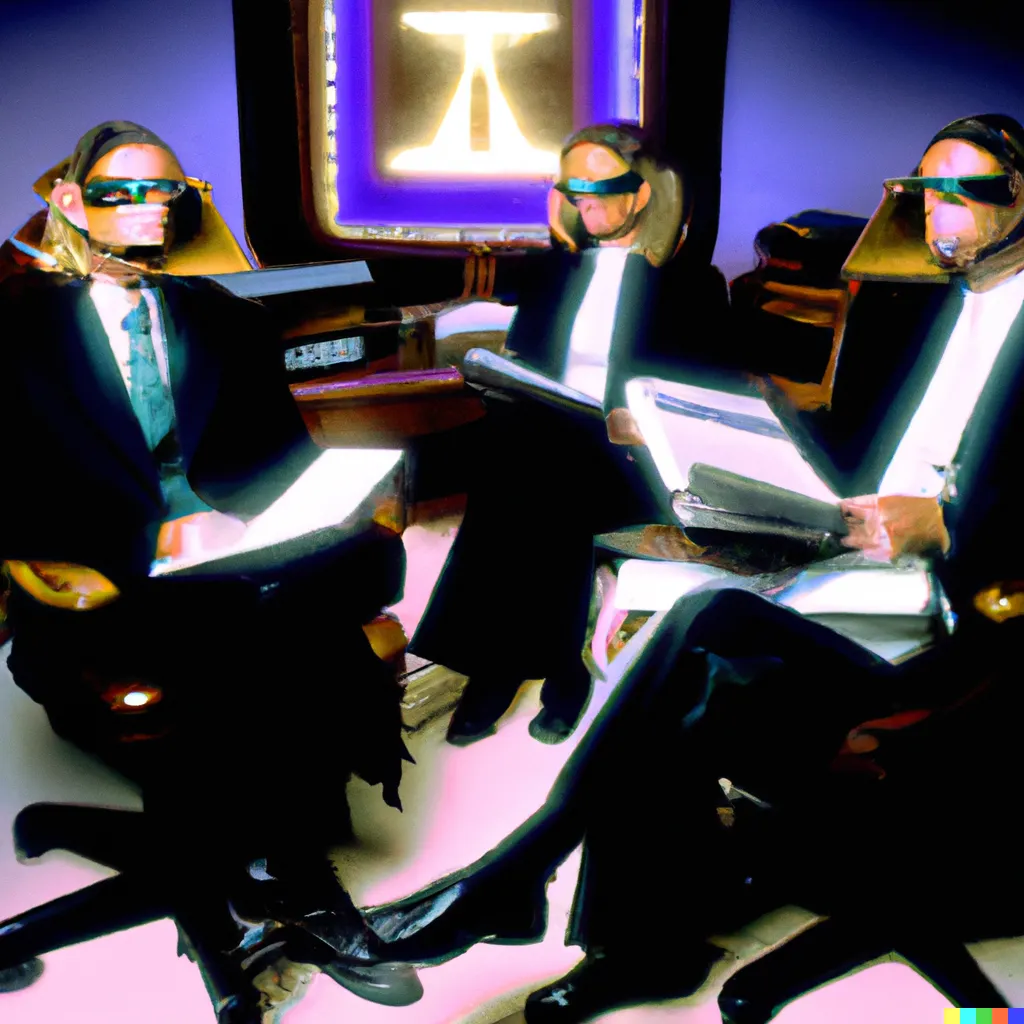
Could AI ever replace lawyers entirely?
It's only natural to question if, as AI develops, it will one day be able to replace lawyers. After all, AI has already replaced human labor in several areas, including legal research and document review. Is it possible that AI could one day replace legal professionals entirely?
The quick response is no, for better or for worse.
It's possible that AI could one day assist lawyers in their work, but it's unlikely that it could ever entirely replace them. Because becoming a lawyer involves more than just knowing your way around a computer and numbers, this is the case. The capacity to think critically and imaginatively is essential, as is a thorough familiarity with the law. These are human abilities that AI has not mastered yet.
However, artificial intelligence is already being used into the legal process to automate tasks like document screening and legal research. As a result, attorneys can practice law more efficiently while spending less money. Lawyers can also benefit from AI because it can be used to examine enormous volumes of data fast and accurately.
Even with these developments, AI has a long way to go before it can serve in lieu of human lawyers. AI hasn't advanced to the point where it can fully grasp the intricacies of the law or the complexities of a court case. It has a low capacity for analysis and innovation. So, it's doubtful that AI will ever be able to entirely replace lawyers.
Besides, AI has not yet mastered the following three essential human components for the practice of law:
Firstly, AI is incapable of empathy. To successfully represent their clients and, often, to establish rapport with judges and juries, lawyers need to have a deep understanding of their clients' needs and emotions. Artificial intelligence will never be able to replace human interaction because it lacks the capacity for empathy. Because of this, AI cannot deliver the same level of individualized service as a human lawyer.
The second problem is that AI isn't creative in the same way that humans are. Innovative problem-solving skills are essential for lawyers in order to handle the increasingly complicated issues clients face. AI is unable to mimic this creative process since it can only work with the information it has been programmed to learn. Thus, AI cannot replace a human lawyer in terms of providing cutting-edge legal advice.
In conclusion, AI is lacking a critical component: human judgment. A lawyer's ability to assess the circumstances of a case and choose the most appropriate course of action is crucial. Due to its dependence on the input data, AI is unable to do an analysis on par with a human. Because of this, AI cannot replace a lawyer in terms of making well-informed decisions.
It's possible that AI could one day assist lawyers in their work, but it's unlikely that it could ever entirely replace them. Although AI has come a long way in recent years, it still has a ways to go before it can fully grasp, apply, and present the complexity of the law and legal situations. For the time being, lawyers will still be needed because they possess abilities that artificial intelligence (AI) cannot imitate, such as critical thinking and creative problem solving.
Schell IP is a Denver patent law firm. Its mission is to leverage artificial intelligence in all aspects of the patenting process to create more valuable intellectual property assets.
If you would like to discuss a specific product concept requiring patent protection or speak with a patent lawyer, feel free to contact the Schell IP team.
If you would like to discuss a specific product concept requiring patent protection or speak with a patent lawyer, feel free to contact the Schell IP team.
The content of this website is not intended as legal advice. If you have any question pertaining to a specific matter, speak with an attorney.

